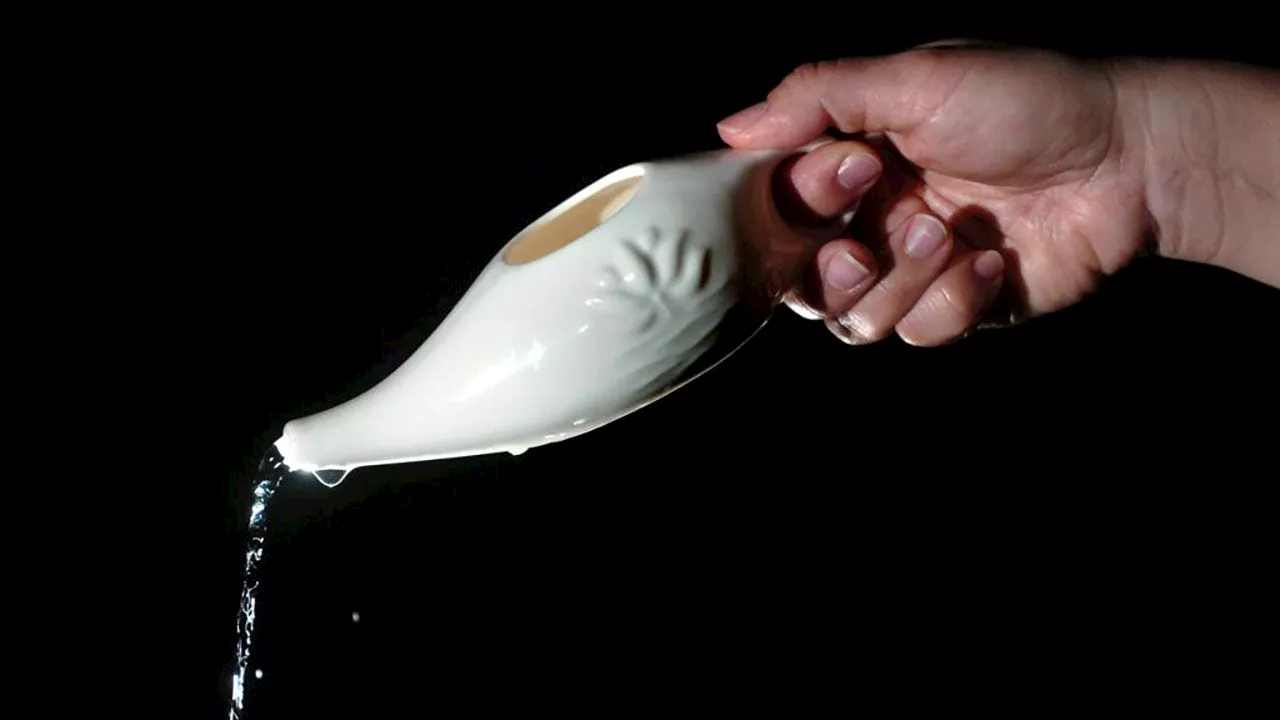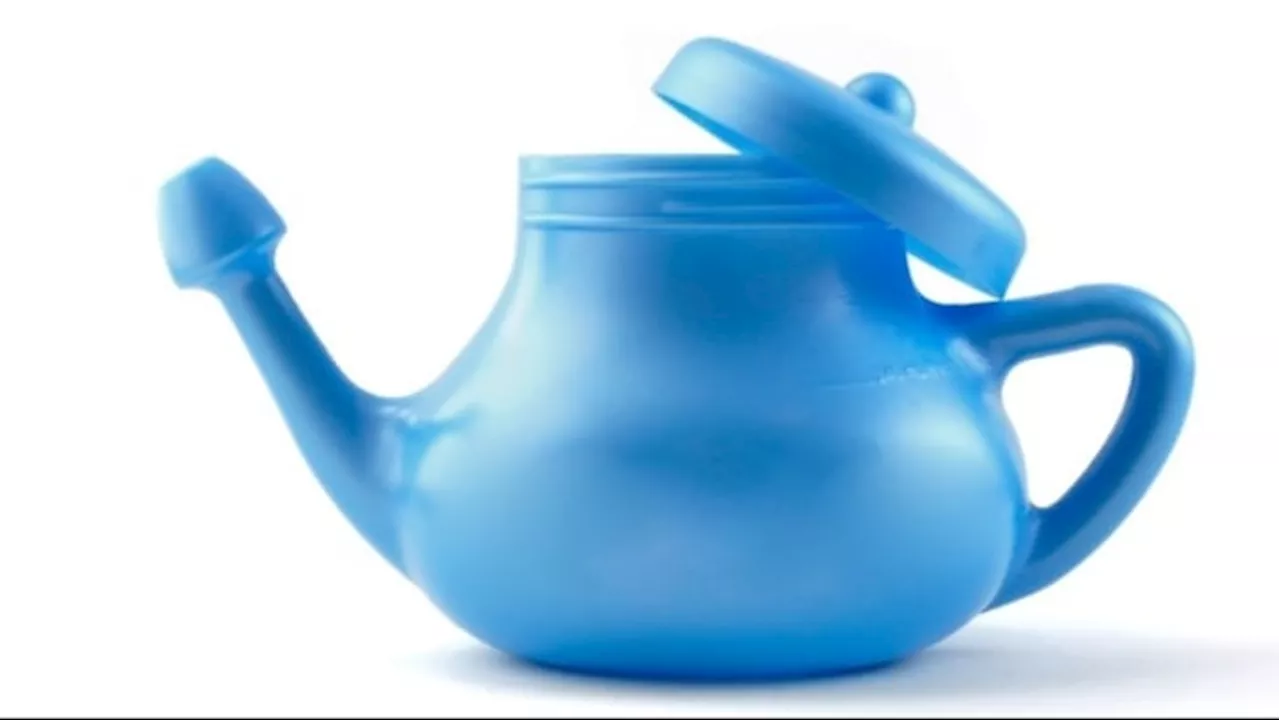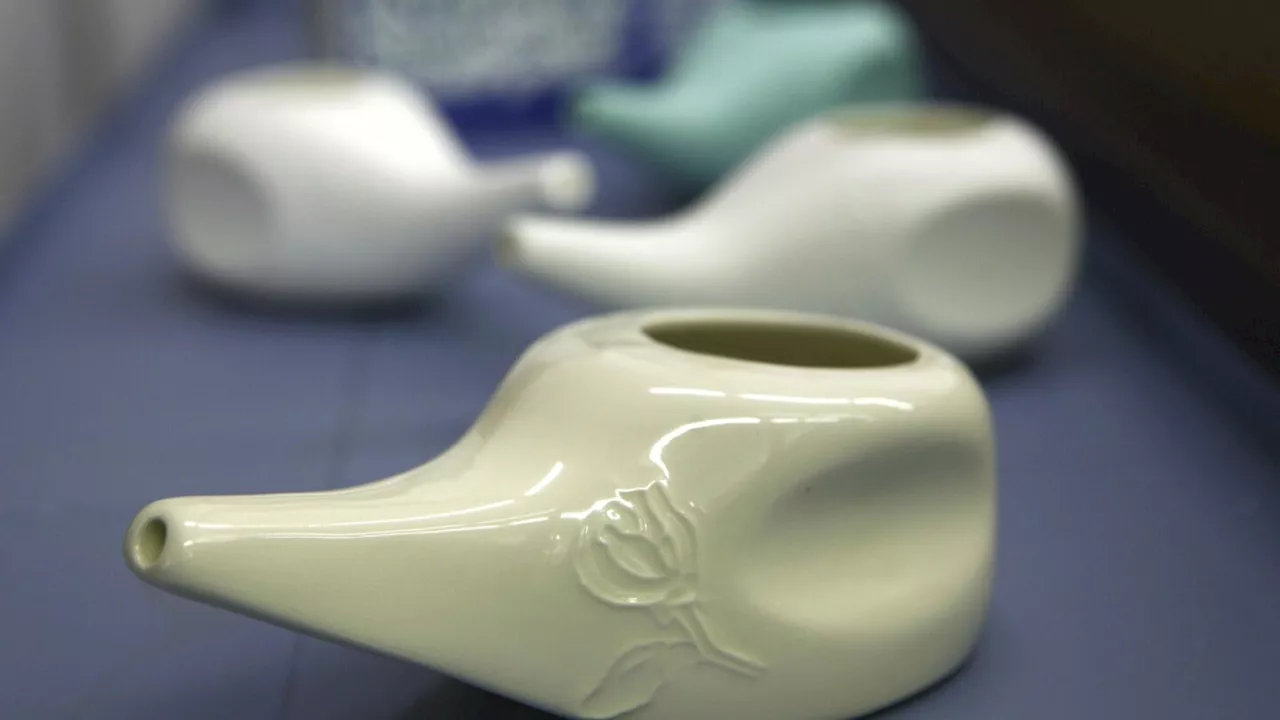The Centers for Disease Control and Prevention released new data that potentially links neti pots and other nasal-rinsing devices to a dangerous amoeba.
Federal health officials have linked neti pots and other nasal-rinsing devices to another potentially dangerous amoeba. The Centers for Disease Control and Prevention on Wednesday published a report that tied acanthamoeba infections to the use of such nasal-rinsing devices. These devices, shaped like small teapots with long spouts, help to flush out clogged nasal passages so that people can breathe easier. The products are safe when used properly, such as with saline or saltwater.
Three died, according to the CDC. The agency noted that the number of patients who survived "is unexpectedly high considering the typical fatality rate for Acanthamoeba infection." Researchers noted that while nasal rinsing may have led to the infections, it was not "definitively determined to be the route of transmission for any case." Health officials previously tied deaths from a brain-eating amoeba, Naegleria fowleri, to nasal rinsing.
United States Latest News, United States Headlines
Similar News:You can also read news stories similar to this one that we have collected from other news sources.
 Why fitness centers are filling up neighborhood shopping centers?Concepts from boxing, yoga, Pilates, stretching and cycling to big full-service options are filling former grocery stores and empty smaller spaces in Dallas-For...
Why fitness centers are filling up neighborhood shopping centers?Concepts from boxing, yoga, Pilates, stretching and cycling to big full-service options are filling former grocery stores and empty smaller spaces in Dallas-For...
Read more »
 Dangerous amoeba has been linked to neti pots and nasal rinsingThe CDC recommends using boiled, sterile or distilled water. If tap water is used, it must be boiled first.
Dangerous amoeba has been linked to neti pots and nasal rinsingThe CDC recommends using boiled, sterile or distilled water. If tap water is used, it must be boiled first.
Read more »
 Neti pots, nasal-rinsing devices linked to potentially deadly amoebaUsing tap water for nasal-rinsing devices was linked to a potentially dangerous amoeba in a new study published by CDC researchers.
Neti pots, nasal-rinsing devices linked to potentially deadly amoebaUsing tap water for nasal-rinsing devices was linked to a potentially dangerous amoeba in a new study published by CDC researchers.
Read more »
 Another dangerous amoeba has been linked to neti pots and nasal rinsing. Here’s what to knowAnother dangerous amoeba has been linked to neti pots and nasal rinsing. The Centers for Disease Control and Prevention published a report connecting Acanthamoeba infections to these devices. It is crucial to avoid using untreated tap water in neti pots as tap water can contain microscopic organisms that pose a risk.
Another dangerous amoeba has been linked to neti pots and nasal rinsing. Here’s what to knowAnother dangerous amoeba has been linked to neti pots and nasal rinsing. The Centers for Disease Control and Prevention published a report connecting Acanthamoeba infections to these devices. It is crucial to avoid using untreated tap water in neti pots as tap water can contain microscopic organisms that pose a risk.
Read more »
 Another dangerous amoeba has been linked to neti pots and nasal rinsing. Here's what to knowResearchers have linked another kind of amoeba to nasal rinsing. The Centers for Disease Control and Prevention on Wednesday published a report that for the first time connects Acanthamoeba infections to use of neti pots and other nasal rinsing devices.
Another dangerous amoeba has been linked to neti pots and nasal rinsing. Here's what to knowResearchers have linked another kind of amoeba to nasal rinsing. The Centers for Disease Control and Prevention on Wednesday published a report that for the first time connects Acanthamoeba infections to use of neti pots and other nasal rinsing devices.
Read more »
 Deadly amoeba linked to nasal rinsingResearchers have linked a second kind of deadly amoeba to nasal rinsing, specifically neti pots. The Centers for Disease Control and Prevention warns about the potential deadly consequences of using common tap water for nasal rinsing.
Deadly amoeba linked to nasal rinsingResearchers have linked a second kind of deadly amoeba to nasal rinsing, specifically neti pots. The Centers for Disease Control and Prevention warns about the potential deadly consequences of using common tap water for nasal rinsing.
Read more »
